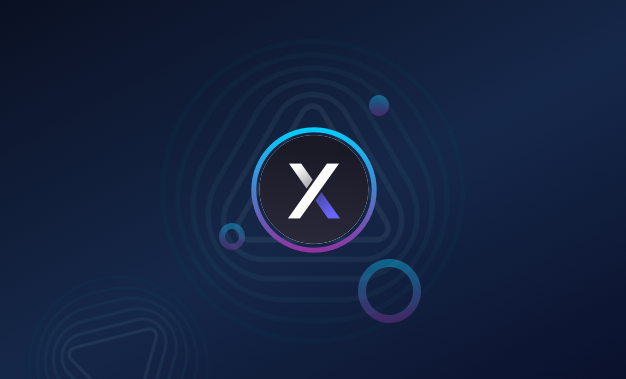-
 Bitcoin
Bitcoin $103,273.7216
0.40% -
 Ethereum
Ethereum $2,510.9981
7.57% -
 Tether USDt
Tether USDt $1.0000
-0.02% -
 XRP
XRP $2.4230
3.00% -
 BNB
BNB $655.4315
2.48% -
 Solana
Solana $173.4988
0.81% -
 USDC
USDC $0.9999
0.00% -
 Dogecoin
Dogecoin $0.2384
16.31% -
 Cardano
Cardano $0.8221
5.54% -
 TRON
TRON $0.2611
-0.06% -
 Sui
Sui $4.0376
3.46% -
 Chainlink
Chainlink $16.9963
6.33% -
 Avalanche
Avalanche $25.4192
10.21% -
 Stellar
Stellar $0.3101
4.98% -
 Shiba Inu
Shiba Inu $0.0...01610
6.46% -
 Hedera
Hedera $0.2142
5.58% -
 Hyperliquid
Hyperliquid $25.4184
1.77% -
 Toncoin
Toncoin $3.4042
3.97% -
 Bitcoin Cash
Bitcoin Cash $422.7067
3.61% -
 Polkadot
Polkadot $5.1332
7.25% -
 UNUS SED LEO
UNUS SED LEO $8.5433
-2.29% -
 Litecoin
Litecoin $104.0435
4.02% -
 Monero
Monero $321.6543
3.48% -
 Bitget Token
Bitget Token $4.8582
8.31% -
 Pepe
Pepe $0.0...01325
7.97% -
 Dai
Dai $0.9999
-0.02% -
 Pi
Pi $0.7407
0.85% -
 Ethena USDe
Ethena USDe $1.0003
0.01% -
 Uniswap
Uniswap $6.9289
9.61% -
 Bittensor
Bittensor $459.5209
8.32%
can dydx coin be transferred
DYDX coins, based on the ERC-20 standard, can be transferred between compatible wallets without any hassle.
Nov 07, 2024 at 03:59 pm

Can DYDX Coin Be Transferred?
DYDX coin is an ERC-20 token that powers the dYdX decentralized exchange. It can be transferred between wallets that support ERC-20 tokens. Here's a step-by-step guide on how to transfer DYDX coins:
Steps to Transfer DYDX Coins
Get a Wallet that Supports ERC-20 Tokens:
To transfer DYDX coins, you'll need a wallet that supports ERC-20 tokens. Popular options include MetaMask, Trust Wallet, and Coinbase Wallet.
Add DYDX Coin to Your Wallet:
Once you have a wallet, you'll need to add DYDX coin to it. To do this, find the "Add Token" or "Import Token" feature in your wallet and enter the DYDX token contract address: 0x92d6c1e31e14520e676a687f0a93788b716beff5.
Get the Recipient's Wallet Address:
Before transferring DYDX coins, make sure you have the recipient's wallet address. This is a unique string of characters that represents the recipient's wallet on the blockchain.
Initiate the Transfer:
In your wallet, navigate to the "Send" or "Transfer" section. Enter the recipient's wallet address, the amount of DYDX coins you want to transfer, and any additional transaction details (e.g., gas fees).
Review and Confirm the Transfer:
Before confirming the transfer, carefully review the recipient's address, the amount, and any other relevant details. Once confirmed, the transaction will be initiated on the blockchain.
Monitor the Transaction:
You can track the status of your transaction using your wallet or a blockchain explorer. Once the transaction is confirmed, the DYDX coins will be transferred to the recipient's wallet.
FAQs about Transferring DYDX Coins
Q: What is the minimum amount of DYDY I can transfer?
A: The minimum amount of DYDX that can be transferred varies depending on the transaction fees and network congestion. It's generally recommended to transfer amounts larger than the minimum to avoid transaction delays.
Q: Are there any fees associated with transferring DYDX coins?
A: Yes, there are network fees associated with transferring DYDX coins on the Ethereum blockchain. These fees vary depending on the transaction demand and can be paid using ETH.
Q: How long does it take to transfer DYDX coins?
A: Transfer times can vary depending on network congestion. On average, it can take a few minutes to several hours for a transaction to be confirmed.
Q: Can I transfer DYDX coins from a centralized exchange to my wallet?
A: Yes, you can transfer DYDX coins from a centralized exchange to your wallet. However, you may need to convert the coins to ETH or another supported currency to initiate the transfer.
Q: Is it safe to transfer DYDX coins?
A: Transferring DYDX coins is generally safe as long as you take appropriate security measures, such as verifying addresses, protecting your private keys, and using reputable wallets.
Disclaimer:info@kdj.com
The information provided is not trading advice. kdj.com does not assume any responsibility for any investments made based on the information provided in this article. Cryptocurrencies are highly volatile and it is highly recommended that you invest with caution after thorough research!
If you believe that the content used on this website infringes your copyright, please contact us immediately (info@kdj.com) and we will delete it promptly.
- Dormant Bitcoin BTC/USD Whale Awakens After 10 Years, Dumping $207.51M Worth of Bitcoin
- 2025-05-11 06:20:12
- Pepe Coin (PEPE) Rallies 60% in 4 Days as Bulls Target $0.000022
- 2025-05-11 06:20:12
- The Ultimate Guide to the Best Cryptocurrency Presales in 2025: Maximizing Your ROI
- 2025-05-11 06:15:13
- BlackRock Pushes For In-Kind Creation And Redemption For Ethereum ETF
- 2025-05-11 06:15:13
- Cardano (ADA) price reaches $0.649 during May 2025
- 2025-05-11 06:10:13
- Bitcoin (BTC-USD) surged above $102,000 on Thursday to touch its highest level since late January.
- 2025-05-11 06:10:13
Related knowledge

What is Ethereum’s Slashing mechanism and how to punish malicious behavior?
Feb 20,2025 at 03:08am
Key PointsOverview of slashingDifferent types of slashing in EthereumIncentives and consequences of slashingIdentifying and reporting slashed validatorsOngoing discussions and potential improvementsEthereum's Slashing Mechanism: Punishing Malicious BehaviorEthereum's slashing mechanism is an essential tool for ensuring network security and punishing mal...

What is the verifier node of Ethereum and how to become a verifier?
Feb 19,2025 at 06:00pm
The Verifier Node of Ethereum: A Comprehensive GuideKey Points:What is a Verifier Node?How to Become a Verifier NodeResponsibilities and Rewards of a Verifier NodeMinimum Requirements for Becoming a Verifier NodePotential Difficulties in Running a Verifier Node1. What is a Verifier Node?A Verifier Node is an independent entity on the Ethereum network th...

What is Ethereum’s staking, and how to participate and earn money?
Feb 19,2025 at 04:37pm
Key Points:Understanding Ethereum's Staking MechanismSteps to Participate in StakingBenefits and Rewards of StakingSecurity and Risk ConsiderationsTechnical Requirements and Hardware OptionsPotential Challenges and Troubleshooting TipsFAQs on Ethereum StakingWhat is Ethereum's Staking?Proof-of-Stake (PoS) is a consensus mechanism used in blockchain netw...

What is Ethereum’s DAO (Decentralized Autonomous Organization) and how does it work?
Feb 20,2025 at 03:12am
Key PointsDefinition and Structure of a DAOGovernance and Decision-Making in DAOsBenefits and Use Cases of DAOsChallenges and Limitations of DAOsWhat is Ethereum's DAO (Decentralized Autonomous Organization) and How Does It Work?Definition and Structure of a DAOA Decentralized Autonomous Organization (DAO) is an innovative governance and management fram...

What is Ethereum's multi-signature wallet and how to improve security?
Feb 20,2025 at 02:18pm
Key Points:Understanding the Concept of a Multi-Signature WalletBenefits and Drawbacks of Multisig WalletsRequirements for Setting Up a Multisig WalletStep-by-Step Guide to Generating a Multisig WalletImplementing Strategies for Enhanced Security1. Understanding the Concept of a Multi-Signature WalletA multi-signature (multisig) wallet in the Ethereum e...

What is Ethereum's oracle and how to provide data for smart contracts?
Feb 21,2025 at 01:30am
Key Points:Understanding the concept of oracles in EthereumExploring different types of oraclesDetailed guide on how to provide data for smart contractsAddressing potential challenges and considerationsWhat is Ethereum's Oracle?Oracles are crucial components in the Ethereum ecosystem, enabling smart contracts to access real-world data and off-chain even...

What is Ethereum’s Slashing mechanism and how to punish malicious behavior?
Feb 20,2025 at 03:08am
Key PointsOverview of slashingDifferent types of slashing in EthereumIncentives and consequences of slashingIdentifying and reporting slashed validatorsOngoing discussions and potential improvementsEthereum's Slashing Mechanism: Punishing Malicious BehaviorEthereum's slashing mechanism is an essential tool for ensuring network security and punishing mal...

What is the verifier node of Ethereum and how to become a verifier?
Feb 19,2025 at 06:00pm
The Verifier Node of Ethereum: A Comprehensive GuideKey Points:What is a Verifier Node?How to Become a Verifier NodeResponsibilities and Rewards of a Verifier NodeMinimum Requirements for Becoming a Verifier NodePotential Difficulties in Running a Verifier Node1. What is a Verifier Node?A Verifier Node is an independent entity on the Ethereum network th...

What is Ethereum’s staking, and how to participate and earn money?
Feb 19,2025 at 04:37pm
Key Points:Understanding Ethereum's Staking MechanismSteps to Participate in StakingBenefits and Rewards of StakingSecurity and Risk ConsiderationsTechnical Requirements and Hardware OptionsPotential Challenges and Troubleshooting TipsFAQs on Ethereum StakingWhat is Ethereum's Staking?Proof-of-Stake (PoS) is a consensus mechanism used in blockchain netw...

What is Ethereum’s DAO (Decentralized Autonomous Organization) and how does it work?
Feb 20,2025 at 03:12am
Key PointsDefinition and Structure of a DAOGovernance and Decision-Making in DAOsBenefits and Use Cases of DAOsChallenges and Limitations of DAOsWhat is Ethereum's DAO (Decentralized Autonomous Organization) and How Does It Work?Definition and Structure of a DAOA Decentralized Autonomous Organization (DAO) is an innovative governance and management fram...

What is Ethereum's multi-signature wallet and how to improve security?
Feb 20,2025 at 02:18pm
Key Points:Understanding the Concept of a Multi-Signature WalletBenefits and Drawbacks of Multisig WalletsRequirements for Setting Up a Multisig WalletStep-by-Step Guide to Generating a Multisig WalletImplementing Strategies for Enhanced Security1. Understanding the Concept of a Multi-Signature WalletA multi-signature (multisig) wallet in the Ethereum e...

What is Ethereum's oracle and how to provide data for smart contracts?
Feb 21,2025 at 01:30am
Key Points:Understanding the concept of oracles in EthereumExploring different types of oraclesDetailed guide on how to provide data for smart contractsAddressing potential challenges and considerationsWhat is Ethereum's Oracle?Oracles are crucial components in the Ethereum ecosystem, enabling smart contracts to access real-world data and off-chain even...
See all articles






















































































